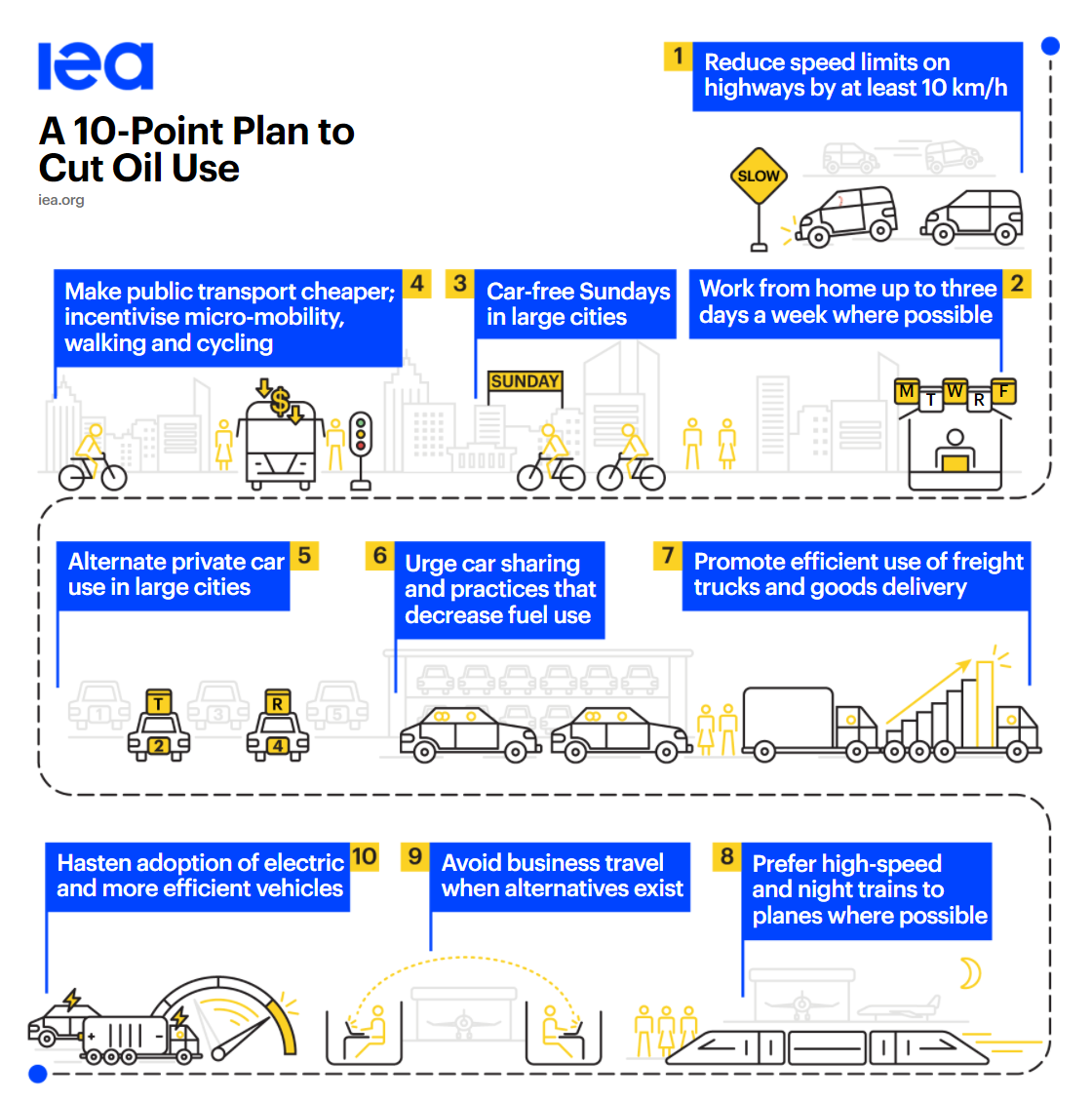If fully carried out in advanced economies, the measures recommended by the IEA’s new 10-Point Plan to Cut Oil Use would lower oil demand by 2.7 million barrels a day within four months – equivalent to the oil demand of all the cars in China. This would significantly reduce potential strains at a time when a large amount of Russian supplies may no longer reach the market and the peak demand season of July and August is approaching. The measures would have an even greater effect if adopted in part or in full in emerging economies as well.
Since the majority of oil demand comes from transport, the IEA’s 10-Point Plan focuses on how to use less oil getting people and goods from A to B, drawing on concrete measures that have already been put to use in a diverse range of countries and cities. The short-term actions it proposes include reducing the amount of oil consumed by cars through lower speed limits, working from home, occasional limits on car access to city centres, cheaper public transport, more carpooling and other initiatives – and greater use of high-speed rail and virtual meetings instead of air travel.
IEA News
Perfectly sensible recommendations, but I fear parts of the public in many countries would vocally oppose their adoption, particularly restricting urban car use during weekends. The recent crisis reminded me that we used to have similar restrictions in Romania in Communist times, namely cars with odd numbers on their license plates were permitted to circulate on odd days and vice versa – a similar initiative now, no matter how beneficial for society, would only invoke the specter of poverty and dictatorship of those past times.

Countries such as Germany already moved forward with measures like slashing the price of public transport tickets and reducing fuel taxes. Meanwhile, California’s Governor is proposing to send money to registered vehicle owners, a regressive move that rewards and encourages car ownership instead of reducing the reliance on oil. Unfortunately, despite the climate emergency, I think we will continue to see an abundance of short-term measures designed to mitigate energy prices (supported by the electorate) and few genuine structural changes towards less fossil fuels and reduced energy consumption.
It’s amazing how asking people to drive less is now considered a bridge too far. During the oil crisis of the 70s, even Republicans urged people to carpool. Now that view gets you labeled an unreasonable hater of working people. We were car-centric in the ‘70s, so it’s not that.
— John Lloyd (@boyonabike62) March 24, 2022
Post a Comment